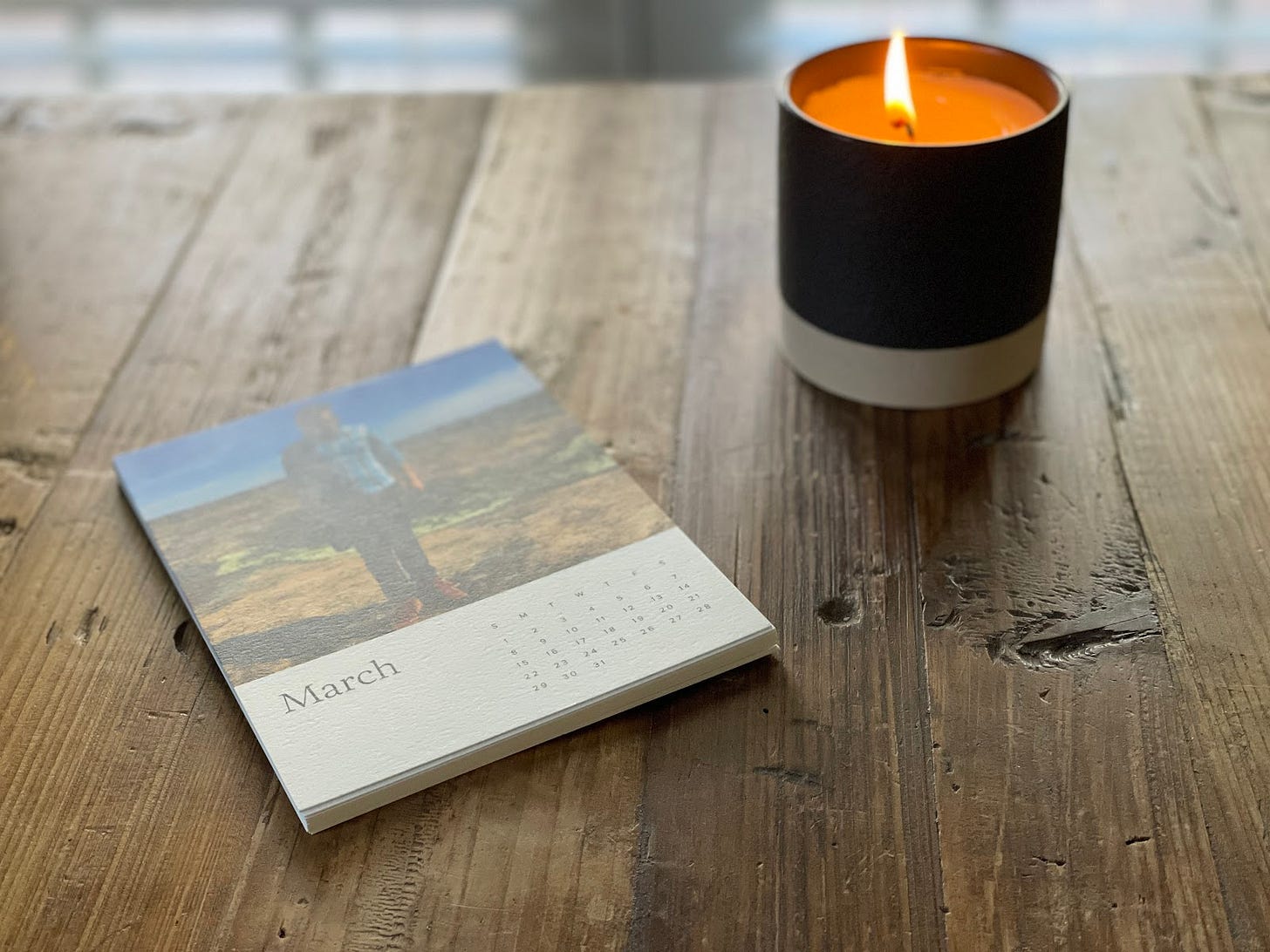Blame the anniversary effect
It’s somehow been a year since this whole mess began.
It happened when I was planting flowers. A lot of little things went wrong at once—we didn’t have enough potting soil, the baby started crying, I had a headache—and, before I knew it, I was on my knees, in tears, unable to finish what was supposed to be a relaxing task.
It seems like almost everyone I know has reached some kind of breaking point in the last few weeks. For people in places like Texas, experiencing freezing temperatures without reliable power or water, hitting a low point is understandable. For the rest of us, there’s less of an obvious explanation for the irritability, sadness, anger, and lethargy we’re feeling.
That is, until you look at a calendar. March isn’t far away.
It has, somehow, been almost one year since coronavirus was declared a pandemic. It’s been almost a year since we’ve been able to hug our friends, visit our relatives, eat inside a restaurant, go to the movies, enjoy a concert, feel the warmth of a crowd, travel someplace far away, leave the house without worrying about a mask, be apart from our partners, get a break from our children, make new friends, feel normal.
In my experience, the weeks and days leading up to the anniversary of a traumatic event are the hardest. As the date of Jamie’s death approaches each year, I tend to sleep worse, get angry more quickly, and cry more easily. And now, as March creeps ever closer, I’m feeling a similar dread.
Psychologists call this the “anniversary effect.” Our brains and bodies store painful memories, which can be triggered by certain dates or seasons. This helps explain why we’re struggling right now. It explains why I was crying over flowers, why it feels so hard to focus on anything, and why our worries have spiraled out of control so easily.
In the case of the ongoing coronavirus crisis, many of our memories and emotions that get triggered are unresolved. We haven’t yet had the opportunity to pause and take stock of what we lost and what we learned. This makes healing—and making sense of everything we’re feeling—more complicated.
Some grief anniversaries—like Jamie’s death—fall on a specific day. By this point, I know to take February 4 off work and plan to take it easy the rest of that week. Other grief anniversaries—like a prolonged illness, for example—might last for several weeks or an entire season.
I suspect that the anniversary effect of the coronavirus pandemic may drag on. There’s not one specific day to brace ourselves for. There was the day COVID-19 was declared a pandemic (March 11), the day that the U.S. announced a national emergency (March 13), the day that the CDC recommended cancelling or postponing in-person events of 50 or more people (March 15), the day that number was changed to 10 or more people (March 16), and so on, and so on. That’s just a snapshot in the United States. Well before March, the virus was spreading rapidly and taking hundreds of lives in places like China and Italy.
I haven’t yet figured out how to ensure that a traumatic anniversary won’t be hard, but I do know how to make it less miserable than it needs to be. The key is to be compassionate with yourself and mindful about what you’re feeling. Take some time to pause. Reflect on how much you’ve grown. Mourn what you’ve lost. Allow yourself to be angry for the way things are. Feel what you need to.
The one thing you shouldn’t do—and I share this from my own mistakes—is try to ignore the anniversary altogether. It will sneak up on you, no matter what. Even if your brain tries to forget, your body will remember.
Instead, I recommend being ridiculously, wonderfully gentle with yourself—especially when you’re feeling low. Do things that soothe your anxious brain. Drink lots of water. Spend some time outside. Move your body. Prioritize sleep over scrolling. Stretch. Take a mental health day. Sing this song at the top of your lungs.
As I’m writing this, I realize that I don’t have a tidy ending for this newsletter essay. Like you, I haven’t fully processed the toll of living in a pandemic because, well, I’m still living it. There is an end in sight to this pandemic, but it’s fuzzy. We don’t know when or where or how life will resume—and what things will look like when it does.
So instead of grasping to find the right words, I’m going to share a passage from Haruki Murakami’s Kafka on the Shore. It brings me comfort. I hope the same is true for you.
And once the storm is over you won’t remember how you made it through, how you managed to survive. You won’t even be sure, in fact, whether the storm is really over. But one thing is certain. When you come out of the storm you won’t be the same person who walked in. That’s what the storm’s all about.
Here’s to weathering the storm, my friends. Be gentle with yourselves in the weeks ahead.
xoxo KHG
p.s. How do you honor difficult anniversaries? Do you light a candle? Listen to a specific song? Visit a special place? I’d love to learn about your grief anniversary rituals—or hear how you plan to get through this COVID milestone. Reply to this email, leave a comment, or send me a message. I’ll feature a variety of responses in Friday’s newsletter—a ridiculously, wonderfully gentle place for paying subscribers.
Sharing is caring
Thank you, Ashley!


I’m still on a quest to reach 5,000 readers and 500 paying subscribers this year. Will you help me reach this goal?
You can recommend My Sweet Dumb Brain to your favorite people, purchase a subscription for yourself or someone else, or share this issue on social media. Word of mouth goes a long way in the newsletter world!
My Sweet Dumb Brain is written by Katie Hawkins-Gaar. It’s edited by Rebecca Coates, who, a year ago, was looking forward to what would be her very last trip before everything in life shuttered. Oh, to be back at that cabin!
This newsletter contains a Bookshop.org affiliate link.




Oof. this is such a loaded one. And that's not a bad thing btw. I have been dealing with grief a good part of my life, having lost my grandfather when I was 11, my father when I was 13, my mother when I was 21, my grandmother when I was 30... anyway, you get the picture. I mostly honor 2 anniversaries - my mom and dad -- and each year is different. Some years, it's quiet reflection, other years I want to share with others. I think about them all the time but this year as my father's anniversary approached, I really spent time thinking about our relationship as a whole. I came to the conclusion that it wasn't just one thing that I learned from him, or one thing that I missed, but a million little things. It brings me comfort to know I take certain actions or value certain things because I learned them from him... and on the flip side, it makes me sad that I missed out on all I could have learned. Part 2 of my reply: For the pandemic, the line you wrote about how you can't trick your brain because your body remembers was like a lightbulb going off. I haven't been sleeping well, which is not new. But what is new is my dreams have been about fighting back, hiding, being scared of being chased or killed. I couldn't figure out why I keep having versions of this dream lately but now I think I know.... I'm subconsciously dreading March - ironic since my birthday is in the same month and I've always looked forward to spring.
My niece died by suicide 3 years ago-she would have been 24 earlier this month. I shared your essay with my sister and we cried together. Thank you for being vulnerable and sharing with us so openly. I love what you are doing. You are a gift.